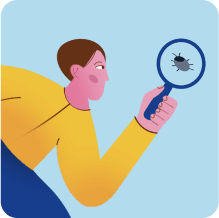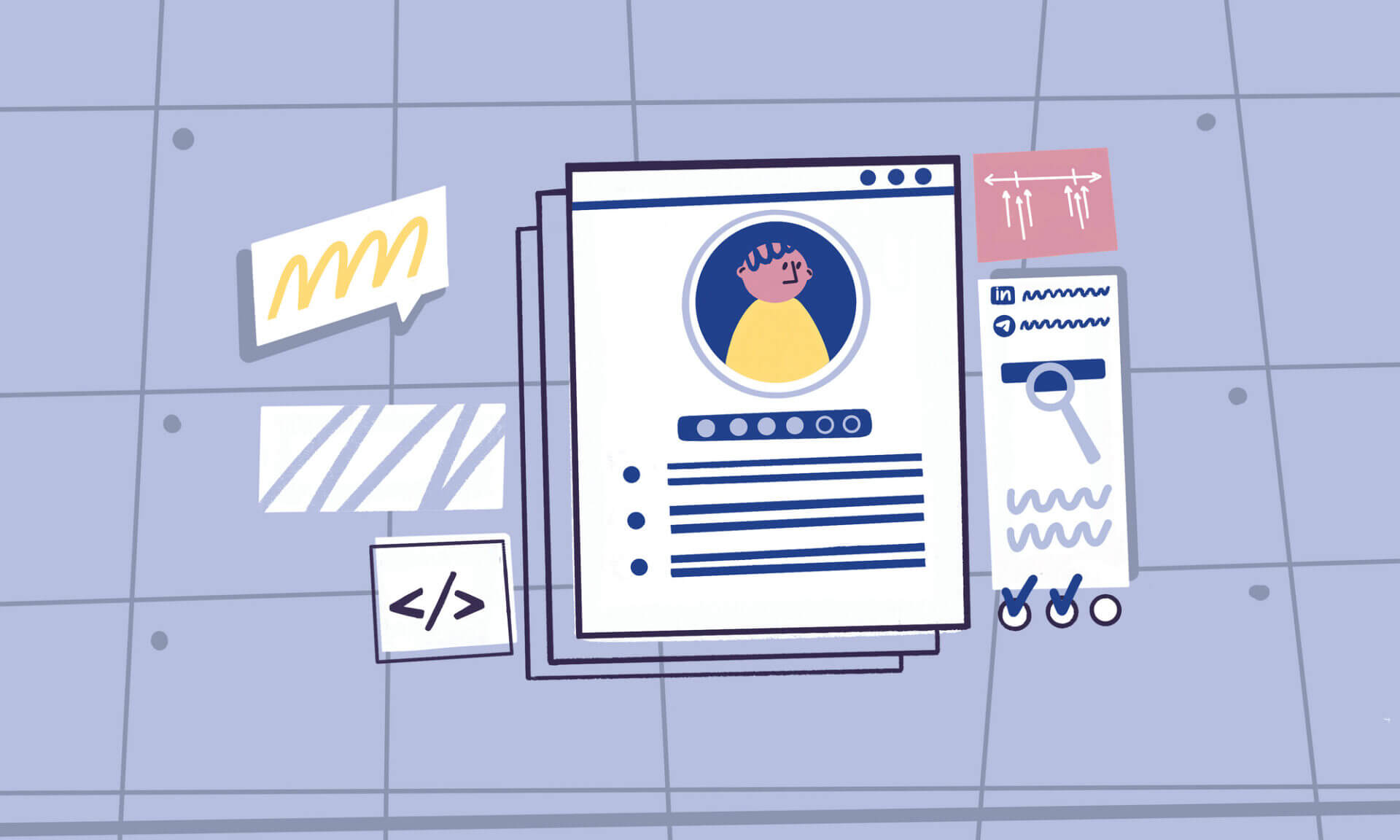The good news, you don’t have to be a tester to hire one if your company still lacks a quality assurance prodigy. And the best news, aqua’s HR Yulia picks her teeth with hiring the perfect testers.

“A tester is the last one in the software quality chain. That's why it's so vital to hire the right tester.”
And today, she wants to share her experience on how to find a good software tester, what skills for a QA tester are necessary and what is a high-profile QA tester skill set.
How and where to find candidates?
The better candidate, the higher chance that they will catch bugs in your code before they get shipped out to customers. But where to look for them besides job boards or websites? Here are a few places to start:
Your HR
The very first place to address a search for a good candidate, of course, is your HR. They might already have an internal list of people looking for jobs, which can be a great resource. Plus, HRs know everything about your company, which means they can find the right person.
Social media
Search for them on Twitter, Telegram, Slack or LinkedIn. Search by including the term “QA” in your search terms or just the word “tester.” You can also search for local users who have listed their location as a specific city or state.
You can post your job vacancy in dedicated channels, communicate in thematic discussions on Telegram, or use Sales Navigator on LinkedIn.
Influencers
If your budget allows, you can go further and be more creative. Contact a few influencers from your industry and ask them to mention your company and an open position for QA testers. Remember to provide them with a description of the QA tester’s required skills.
Check out aqua’s list of QA influencers.
Word of mouth
Ask your current employees if they know anyone who might be interested in applying for the position (if there is one). This will help you build up a strong network of potential candidates for future jobs at your company.
External network
Check out local meetups and events where software testers might be hanging out — you never know what kind of opportunity might come from meeting someone new!
What to look for when searching for a QA tester?
So, the main challenge is the sea of newcomers who flooded the testing market. Only some have realised whether this is their recognition, and not everyone had good teachers. And this needs to be dealt with. As soon as possible, from the mass of candidates, find the one who suits us and to whom we fit. It’s relatively easy to find a regular tester. This is a pretty standard task.
However, the true challenge is to find a QA lead when you already have a QA team. The QA lead will probably change everything accordingly to build a successful software testes team).
So I would give you some tips for hiring software testers no matter what level in the team they are supposed to take:
Determine the problem
The first thing to consider is what problem we are solving with hiring. You need to know the problem perfectly to find the right person.
Sometimes it turns out that you don’t need an actual tester. For example, we needed someone to automate testing processes within a software testing tool with advanced coding skills. We thought our task was to find a QA lead, but in the end, we hired a coder who likes incorporating and maintaining test automation. He also possessed relevant soft skills, and our automation task was solved without hiring a QA lead.
Set up the main requirement
If you find out what problem you need to solve, the next step should be to determine the means of the solution. Usually, it can be executed via either manual or automated testing. So consequently, you need a person with the necessary QA tester technical skills.
If testing needs to be automated, what are our plans for test automation: what functionality do we want to cover with autotests, what tasks can be solved with the help of automation, and what technologies we use? All this must be known to tell the candidate competently.
If it’s manual, then the candidate will have questions about whether there are other testers, what documentation is usually kept in the company, at what stage of development the tester is connected, and much more.
In general, you need to know the answers to the questions of candidates to motivate them.
Look for hard but not always solid skills
According to hard skills for a QA tester, it’s usually vital to figure out what the candidate tested: backend, UI, API, and whether they did load testing. It depends on the position’s requirements; you must ask the development team about this. And then compare the candidate’s experience with the project’s conditions.
It may be necessary for automation engineers to know a particular programming language, but this is only sometimes the case. If a candidate is the first or only automation engineer, then they can introduce the practice of using a particular language and technology.
Knowledge of the basics of testing theory can be tested already at the first interview with HR, for example, the boundary value method.
Test frontend, backend, UI or API in a couple of clicks
Don't dismiss soft skills
As a clean conscience makes a soft pillow, the soft skills of your future employee make work smoother and clear. it’s very often when HRs look into hard skills for tech positions dismissing soft ones, which I wouldn’t recommend doing as it can slip the entire team’s motivation.
Here are some soft skills that I consider a must-have for a tester:
- Attention to detail, meticulousness (a sloppy summary of a tester inspires doubt)
- Responsibility (the tester is usually the last one in the product delivery chain)
- Systemative or analytical thinking
- Communication skills (as a candidate communicates a lot with the team, you need to be able to convey your thoughts and avoid conflict in some places)
- Calm, diligent, focused
Praise patience
And finally, they need patience! It can take time for testers to find all the bugs in an application — so if there’s one thing that tests patience more than anything else (besides bad drivers), it’s waiting for someone else’s computer to load up so you can do another round of tests!

If you want to test your candidate for patience, start with a detailed introduction of the company, describe their role in the company with precision and see how carefully they will listen. I usually wonder what a person appreciates in people and what they consider unacceptable. What kind of work they like, and what they perceive as a necessary evil and would prefer not to do it.
It can be seen from the answers how patient your candidate is. It happens that a person understands that some kind of work is essential, although not very pleasant.
This can also be understood by the resume and portfolio detail and by the answers' completeness.
Conclusion
While searching for a person, we constantly need to return to the original problem we solve with this search.
QA engineers also need to communicate well with other team members and clients or users who want feedback on their product.
Here are some things to ask before getting the answer to the main question “How to hire a software tester?”:
- Do they have experience working with the type of software you’re developing?
- Do they have experience with the programming languages and technologies used to develop your product?
- How do they approach problems? Do they jump in headfirst or take a more systematic approach?
- What do they do when faced with an issue? Do they try to resolve it themselves or rely on others for help?
If someone is good at their job but doesn’t check all these boxes, don’t necessarily pass up on them — just make sure that if there’s any issue with their performance, you can get them some help, so everyone stays on track.
One-in-all tool for comprehensive testing







